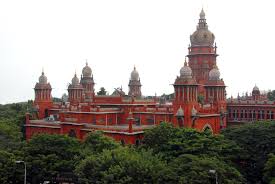Madras High Court Approves Statutory Bail in NDPS Case as Extension and Bail Applications Were Not Resolved Together.

The Madras High Court granted statutory bail in an NDPS case because the Trial Court did not handle the extension application and the bail application together. The Court overturned the Special Court’s order for an Extension of Investigation under Section 36A(4) of the Narcotic Drugs and Psychotropic Substances Act, 1985, stating that there were no valid reasons for further detention. The Special Court had previously rejected the statutory bail petition while approving the Prosecution’s requests for more time to submit final reports. Justice Sunder Mohan noted that the Trial Court failed to address the extension and bail applications together as required by a Supreme Court ruling and did not act on the extension application quickly. Due to this oversight, the Court decided that the petitioners were entitled to statutory bail in all cases.
Advocate A. Rajamohamed represented the Petitioner, while Additional Public Prosecutor E. Raj Thilak represented the Respondent. The accused were arrested in March and April 2024. The NDPS Act allows 180 days for completing the investigation. Before this period ended, the prosecution requested extensions under Section 36A(4) of the NDPS Act. However, these requests were not handled promptly, and the Trial Court did not decide them alongside the statutory bail petitions from the accused. The Special Court later dismissed the bail petitions, citing the approval of the extension applications. The accused appealed to the High Court, arguing that the delay in considering the extension applications made the orders invalid and reinstated their right to statutory bail.
The High Court referenced the Full Bench Judgment from the Calcutta High Court in Subhas Yadav v. State of West Bengal (2023). It stated that an accused has a right to statutory bail after the detention period under section 36A(4) of the NDPS Act ends, but this right is not automatic. The accused must actively seek bail through an application or verbally. Therefore, simply reaching 180 days does not guarantee release, especially if the prosecutor has not filed for an extension before that time. The Court observed that extension requests were addressed after delays and were not considered with the statutory bail requests.
As a result, the Court mandated that Trial Courts adhere to the guidelines from the Full Bench in Subhas Yadav. Any failure to follow these procedures would violate the accused’s rights and lead to bail being granted. If an extension request is pending when the time for the final report expires, Trial Courts must consider both the extension and bail applications together. The outcome of the bail application will depend on the decision regarding the extension request, the Court clarified. Consequently, the High Court approved the Criminal Revision Case.
Cause Title: Mohamed Asaruthin v. State of Tamil Nadu









